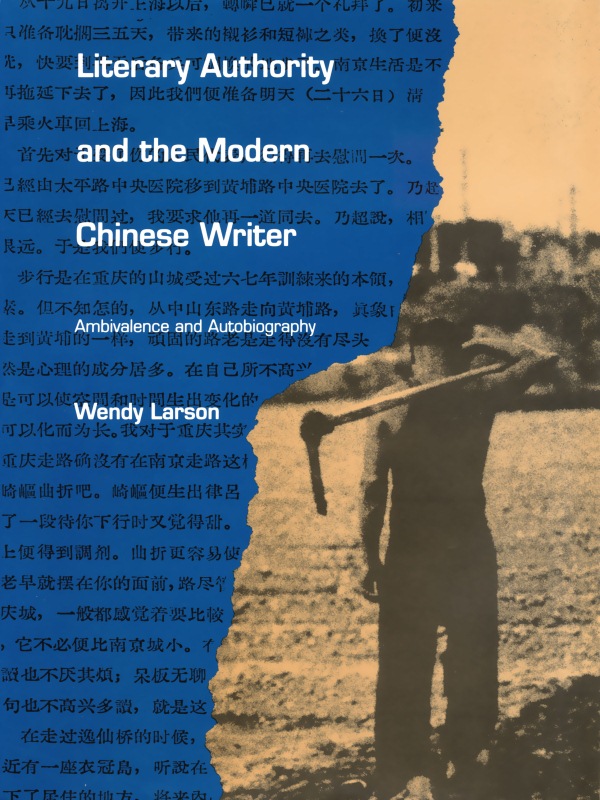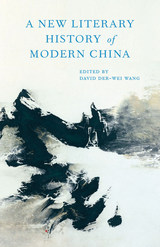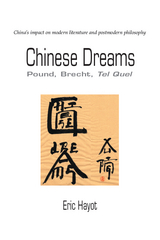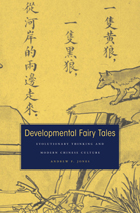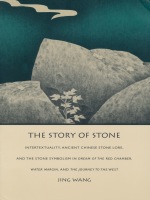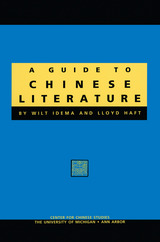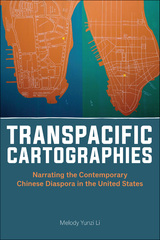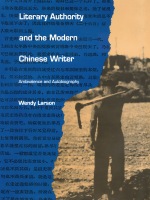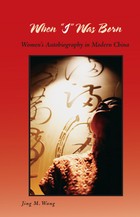Literary Authority and the Modern Chinese Writer: Ambivalence and Autobiography
Duke University Press, 1991
Cloth: 978-0-8223-1113-3 | eISBN: 978-0-8223-7769-6 (standard)
Library of Congress Classification PL2277.L35 1991
Dewey Decimal Classification 895.109005
Cloth: 978-0-8223-1113-3 | eISBN: 978-0-8223-7769-6 (standard)
Library of Congress Classification PL2277.L35 1991
Dewey Decimal Classification 895.109005
ABOUT THIS BOOK | REQUEST ACCESSIBLE FILE
ABOUT THIS BOOK
Throughout the twentieth century, Chinese writers have confronted the problem of creating a new literary tradition that both maintains the culturally unique aspects of a rich heritage and succeeds in promoting a new modernity. In the first book-length treatment of the topic, Wendy Larson examines the contradictory forms of authority at work in the autobiographical texts of modern Chinese writers and scholars and the way these conflicts helped to shape and determine the manner in which writers viewed themselves, their texts, and their work.
Larson focuses on the most famous writers associated with the May Fourth Movement, a group most active in the 1920s and 1930s, and their fundamental ambivalence about writing. She analyzes how their writing paradoxically characterized textual labor as passive, negative, and inferior to material labor and the more physical political work of social progress, and she describes the ways they used textual means to devalue literary labor.
The impact of China’s increasing contact with the West—particularly the ways in which Western notions of “individualism” and “democracy” influenced Chinese ideologies of self and work—is considered. Larson also studies the changes in China’s social structure, notably those linked to the abolition in 1905 of the educational exam system, which subsequently broke the link between the mastery of certain texts and the attainment of political power, further denigrating the cultural role of the writer.
Larson focuses on the most famous writers associated with the May Fourth Movement, a group most active in the 1920s and 1930s, and their fundamental ambivalence about writing. She analyzes how their writing paradoxically characterized textual labor as passive, negative, and inferior to material labor and the more physical political work of social progress, and she describes the ways they used textual means to devalue literary labor.
The impact of China’s increasing contact with the West—particularly the ways in which Western notions of “individualism” and “democracy” influenced Chinese ideologies of self and work—is considered. Larson also studies the changes in China’s social structure, notably those linked to the abolition in 1905 of the educational exam system, which subsequently broke the link between the mastery of certain texts and the attainment of political power, further denigrating the cultural role of the writer.
See other books on: Ambivalence in literature | Authors, Chinese | Chinese | Chinese literature | Literary Authority
See other titles from Duke University Press
